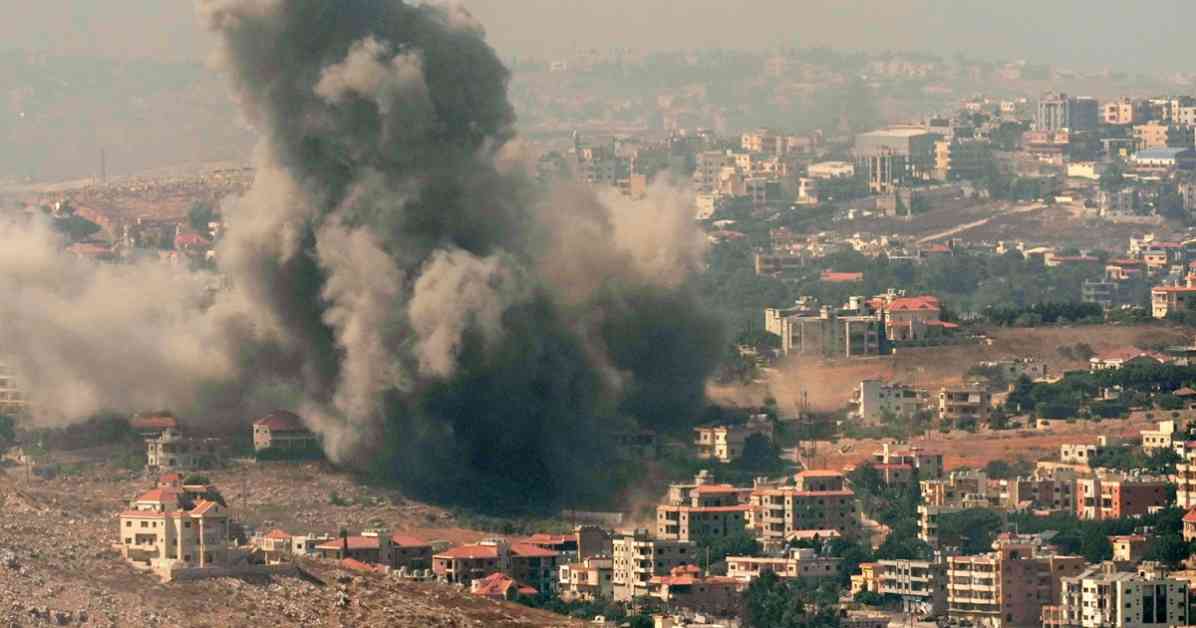Israel Braces for Potential Ground Assault in Lebanon as Military Chief Issues Warning
As tensions escalate between Israel and Lebanon, Israel’s military chief has announced preparations for a potential ground assault in Lebanon. The army has called up two brigades of reservists as a deadly aerial bombardment of Lebanon enters its third day.
In a speech to soldiers in northern Israel, Herzi Halevi explicitly mentioned the possibility of a ground operation against the Lebanese armed group Hezbollah. The recent wave of air strikes was described as “preparing the ground for your possible entry,” indicating a strategic move towards a potential invasion.
“We are preparing the process of a manoeuvre, which means your military boots will enter enemy territory, specifically villages that Hezbollah has transformed into large military outposts,” Halevi stated. This statement marks a significant shift in Israel’s military strategy against Hezbollah.
Hezbollah, an Iran-aligned group, has reportedly expanded its range of fire, prompting a strong response from Israel. The ongoing conflict has led to significant casualties on both sides, with at least 51 people killed in Lebanon on Wednesday alone. The death toll from the past three days has risen to 615, with over 2,000 wounded.
Israeli Prime Minister Benjamin Netanyahu has reiterated his commitment to returning displaced Israelis safely to their homes. He emphasized the impact of the offensive on Hezbollah, stating that the group is being hit “harder than it could imagine.” Netanyahu’s message reflects Israel’s determination to protect its citizens and maintain security in the region.
Hezbollah’s retaliation has also intensified, with dozens of missiles fired at Israel, including a longer-range projectile that reached central areas like Tel Aviv. While the missile was intercepted and no casualties were reported, the incident underscores the escalating nature of the conflict between the two sides.
The mass displacement of civilians in Lebanon has reached alarming levels, with over 90,000 people fleeing the south of the country to seek shelter in the north. Aid organizations have mobilized to provide support to those affected by the violence, converting schools into temporary shelters and calling for blood donations to assist the wounded.
Diplomatic efforts to end the hostilities have gained momentum, with US President Joe Biden acknowledging the potential for an all-out war in the region. However, Biden also expressed optimism about the possibility of a diplomatic resolution, emphasizing the importance of finding a settlement that can bring stability to the region.
The United States is leading a new diplomatic initiative to address the conflicts in Gaza and Lebanon, linking the two fronts as part of a comprehensive approach to regional peace. This coordinated effort aims to de-escalate tensions and promote dialogue between the conflicting parties, with negotiations underway at the UN General Assembly in New York.
The recent escalation in violence between Israel and Hezbollah has raised concerns among world leaders, prompting urgent calls for a ceasefire and diplomatic intervention. The interconnected nature of the conflicts in Gaza and Lebanon underscores the need for a holistic approach to resolving the underlying issues driving the violence.
As the situation continues to unfold, the international community must remain vigilant and proactive in seeking a peaceful resolution to the conflicts in the Middle East. The humanitarian impact of the violence underscores the urgency of finding a sustainable solution that addresses the root causes of the instability in the region.



























